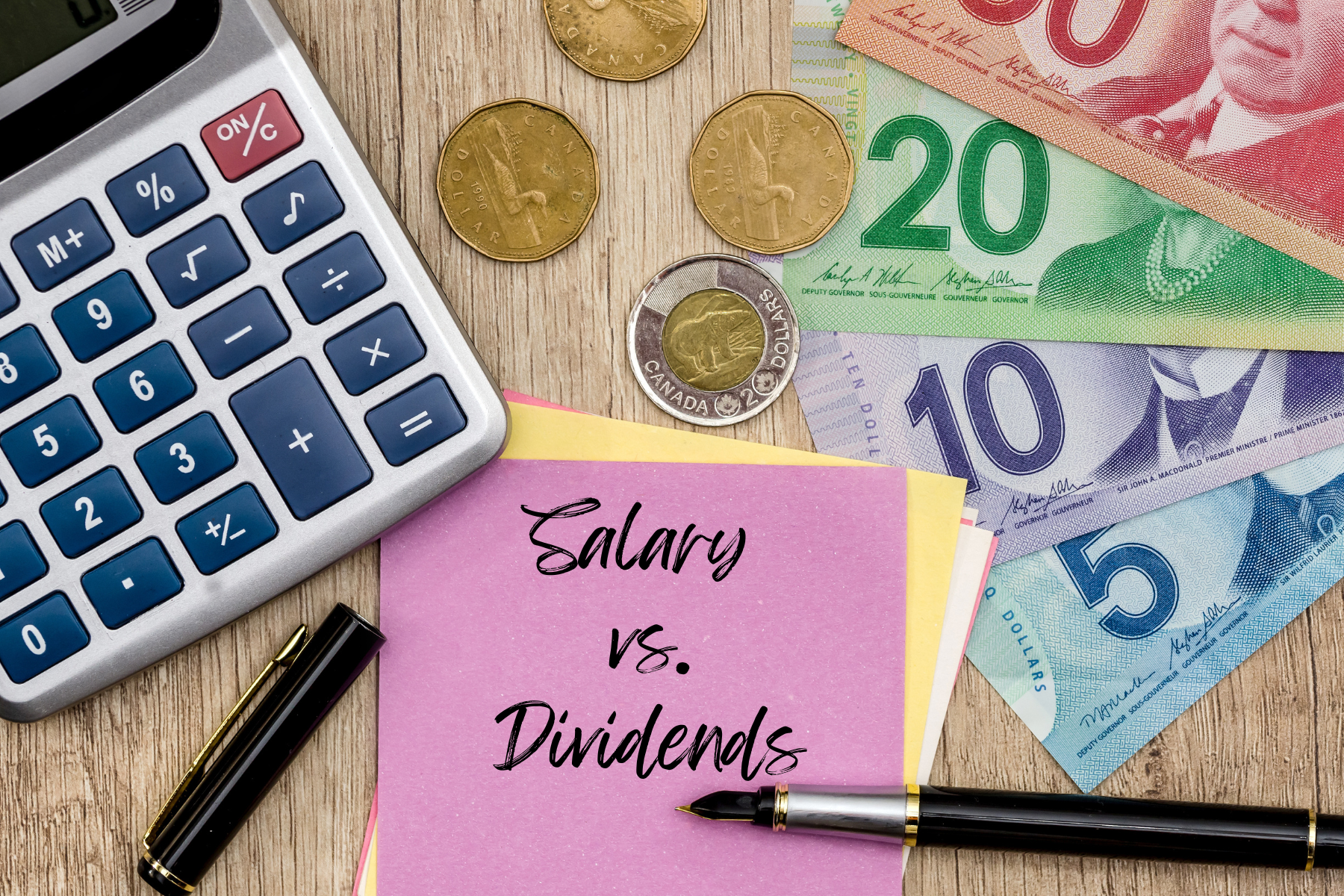As a business owner, you may have wondered about the differences between paying yourself via dividends versus drawing a salary, and how this may affect your tax burden.
Assuming your business is incorporated, you have the flexibility to pay yourself via dividends, drawing a salary, or a combination of both. But the question becomes: which is better for your business (and taxation purposes)?
Dividends, salaries or a mix of both?
The optimal solution is dependent upon your business and its structured. When considering which option(s) may be best for your business, it is important to understand the differences between salaries and dividends and how each are taxed.
Salaries
- Salaries are deducted from company income lowering corporate income taxes paid
- Salaries are taxed at a higher tax rate in the hands of the individual receiving the salary (when compared to dividends)
- Salaries require payroll remittances to be made by the employer (additional administrative burden)
- When paying salaries, employers are required to match CPP remittances therefore there is an additional cost to the company
- Salaries contribute to creating RRSP room for retirement savings
- Requires a T4 tax filing annually
Dividends
- Dividends are paid by the company using after-tax dollars (no tax deduction for the company)
- Dividends are taxed at a lower tax rate in the hands of the individual (when compared to salaries)
- As there is no remittance requirement with dividends they are considered to offer more flexibility (no structured payroll schedule required)
- Dividends do not help the individual tax payer generate RRSP room
- Requires a T5 tax filing each year a dividend is declared/paid
Salary vs. dividend considerations
Now here are a few things to consider when deciding which compensation structure works best for you and your business:
- Whether paying salaries or dividends to yourself as a shareholder, the total taxes paid when looking at the individual and company, will be the same.
- It will depend on your individual situation.
- Salaries are more structured, offer more stability in managing your personal tax bill due to the monthly tax remittances and also assist with retirement planning due to their ability to increase RRSP contribution room.
- Banks generally view salaries more favorably due to their structured nature and this should be taken into consideration if you will be looking for financing or a mortgage.
- You are not required to pick one or the other. You can choose to do a mix of both if that’s the best fit for you.
- If you choose to compensate using dividends one year, you can choose to opt to using salaries at some point in the future (not locked in).
Conclusion
When deciding between salaries and dividends, there is no “one size fits all” solution. All available options should be explored with your advisor. Should you have any questions regarding compensation structure, please contact your Virtus advisor or fill in the form below.


